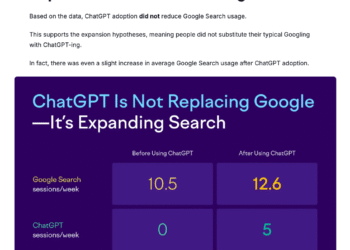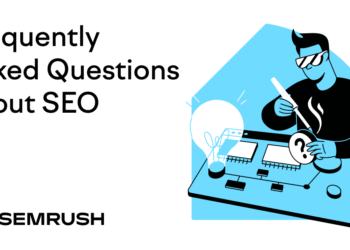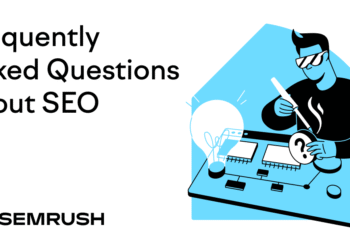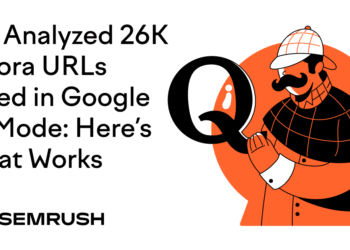What Is PPC Keyword Research?
PPC (pay-per-click) keyword research is the process of identifying the keywords to target within a paid advertising campaign on platforms such as Google Ads and Microsoft Ads.
It includes analyzing search queries that potential customers use when searching for businesses, products, or services similar to yours.
This helps you choose the right keywords to bid on in your PPC ad campaigns. And avoid wasting your ad budget on keywords that won’t drive revenue for your business.
PPC vs. SEO Keywords
Here are the key differences between PPC and SEO keywords:
- Immediate vs. long-term results: PPC keywords can drive immediate clicks and conversions. With SEO keywords, you usually need to rank in the top positions in the search results to attract clicks.
- Commercial vs. informational intent: PPC keyword research prioritizes keywords with commercial intent and aims for an immediate conversion. SEO keyword research, on the other hand, also involves finding and targeting informational queries.
- Control: Bidding on PPC keywords offers more control over who can see and visit your pages in the search results. SEO keywords depend on search engine algorithms, though you can influence them through high-quality content and backlinks.
Why Keyword Research Matters for PPC Success
Targeting the wrong PPC keywords can quickly drain your ad budget. Effective PPC keyword research helps you:
- Increase ROI: By focusing on keywords with high commercial intent (e.g., “emergency dentist atlanta”), you ensure that your ad budget is spent on advertising to people who are more likely to convert
- Reduce wasted ad spend: Avoiding targeting keywords that are irrelevant to your business or unlikely to lead to paid customers (e.g., “free time tracking software”) means that you’ll waste less of your ad budget
- Create more relevant ads: Google gives each ad a Quality Score, which determines how relevant and useful an ad is, considering the user’s search query. Getting a better understanding of the keywords you’re bidding on through PPC research will help you create more targeted ads and improve your Quality Score, which usually leads to lower cost-per-click (CPC) rates.
New Trends in PPC Keyword Research (2025 Data)
We surveyed 100 search marketing specialists to understand their approach to PPC keyword research in 2025. Here’s what we discovered:
- Frequency of keyword research: 57% of PPC specialists conduct keyword research weekly, while 38% do it monthly
- Challenges in PPC keyword research:
- 42% face limited keyword data for niche products/services
- 38% deal with irrelevant or broad suggestions from keyword tools
- 37% struggle with identifying the true search intent behind a keyword
- Keyword organization: 40% of PPC specialists prefer using Single Theme Ad Groups (STAGs) for organizing keywords into ad groups
How to Do Keyword Research for PPC (6-Step Process)
Ready to get started with PPC keyword research? Follow our six-step process to find the right keywords for your next PPC campaign.
1. Define Campaign Goals & Budget
Before starting, you need to decide what you’re trying to achieve with your PPC ad campaign. Your goals will influence everything from keyword selection to your bidding strategy.
Ask yourself these questions:
- What is your end goal?
- What action do you want users to take?
- What is your target cost per conversion?
- How much are you willing to spend on ads per day or month?
For example, a B2B SaaS company might be looking to use PPC ads to generate demo bookings at $30 per demo.
Knowing this, they can target keywords based on average cost-per-click (CPC) and their landing page conversion rate.
If their demo signup landing page has a 5% conversion rate, they will target keywords with a CPC of $1.50 or lower to stay within budget.
Once you know your target cost per conversion and maximum CPC, you can set a daily or monthly ad budget.
2. Brainstorm Seed Keywords
Next, brainstorm seed keywords. These are broad, core terms related to your business, product, or service that will help you generate more specific keyword ideas.
Seed keywords generally fall into three categories:
- Product-based keywords: These describe what you sell, and are often used by people who know what they want (e.g., “CRM software”)
- Problem- or solution-specific keywords: These reflect problems your target customers aim to solve (e.g., “get more Google reviews”)
- Branded keywords: These include your own brand name and your competitors’ brand names (e.g., “Mailchimp alternatives”)
In addition to thinking of potential seed keywords, you can gather more ideas by talking to your sales team, reviewing customer support tickets, and analyzing the terms people use when using your on-site search feature.
Aim to list 10-20 relevant seed keywords.
3. Expand Your List with Keyword Tools
Once you have a list of seed keywords, expand it further to uncover more high-potential keywords for your campaigns. Use Semrush’s Keyword Magic Tool to do this easily:
Simply enter a seed keyword and click “Search.”

The tool will generate thousands of keyword ideas related to your seed keyword.

When selecting keywords for your campaign, pay attention to the following:
- Search volume: How many searches does the keyword get per month?
- Cost-per-click (CPC): How much will it cost when a user clicks on your ad for this keyword?
- Search intent: Is the searcher looking for information, or are they ready to make a purchase?
The Keyword Magic Tool allows you to filter the list by all three factors.
For example, you can use filters to only show keywords with 50-plus monthly searches, a CPC of $1.50 or less, and commercial search intent. Keep in mind that lower-volume, long-tail keywords can still drive strong results, especially in niche and B2B markets.

4. Spy on Competitor Keywords
Your competitors’ PPC campaigns can be a valuable source of keyword ideas, especially if they have larger budgets and have already tested many keywords.
Keep in mind that not every keyword your competitors are bidding on will align with your goals. Assess each keyword based on search intent, offer fit, and your budget.
Use the Advertising Research tool to find the keywords your competitors are bidding on. Here’s how:
Start by entering a competitor’s domain name and click “Search.”

A screenshot of the Advertising Research start page, with the domain input box and Search button highlighted.
The tool will generate a detailed report on your competitors’ PPC activities. Scroll down to the “Paid Search Positions” section to see the exact keywords they’re bidding on and the average CPC for each keyword.

From here, you can export the keywords to an Excel or .CSV file by clicking “Export” and then score keywords in bulk or upload them to your campaign.
5. Organize by Match Type & Ad Group
Assigning match types to keywords and organizing them into ad groups helps control when your ads appear and ensure they align with search intent.
Google Ads offers three match types:
- Broad match: The default match type in Google Ads. Your ad will not just be displayed for your selected keyword but also for related keywords, including synonyms, variations, and misspellings.
- Phrase match: Your ad will be displayed for any search queries that contain your keyword phrase. For example, if your keyword is “dentist near me,” your ad would also get displayed for queries such as “dentist near me boulder colorado” and “best dentist near me.”
- Exact match: This is the most strict match type. With exact match, your ad will only get displayed when a searcher uses your exact keyword.

A good strategy is to start with exact match for your top keywords (high-intent, commercial) to target the highest-quality traffic. Then, use phrase match to broaden your reach.
And then gradually test broad match versions of your keywords to discover profitable variations while monitoring performance and ad spend closely.
When organizing keywords, group them by general themes, known as Single Theme Ad Groups (STAGs).
This helps you write more relevant ad copy, which improves Quality Score, reduces CPC, and enhances performance.
Here’s an example:
|
Ad Group |
Keywords |
|
Appointment Booking Software |
appointment booking software, scheduling software, software to book appointments |
|
Free Scheduling Tool |
free appointment scheduler, free scheduling software, schedule meetings for free |
|
Calendly Alternatives |
calendly competitors, best calendly alternatives, calendly vs acuity |
Each group has closely related keywords, which allows you to write more targeted ads and create more effective landing pages for each group.
6. Add & Prioritize Negative Keywords
Negative keywords help you control which terms Google should exclude from showing your ads.
Using negative keywords is crucial for avoiding wasted ad spend and ensuring your PPC campaigns stay profitable. Especially if you’re using broad or phrase match.
To add negative keywords in Google Ads:
Go to “Campaigns” > “Audiences, keywords, and content” > “Keywords.” Then, visit the “Negative keywords” tab.

And click on “+Negative keywords.”

Choose whether to apply the negative keywords to the entire ad campaign or a specific ad group. And then enter your negative keywords. Click “Save.”

Make sure to update your negative keyword list regularly by checking the “Search terms” report under “Campaigns” > “Insights and reports” > “Search terms” and adding any irrelevant keywords you encounter.
You can also streamline this process by setting up a script to add negative keywords to your list automatically.
PPC Keyword Research Checklist (Free Template)
Streamline your PPC keyword research process with our free checklist. It will help you:
- Define campaign goals
- Research and score keywords
- Organize keyword match types
- Build a negative keyword list
You can download the checklist here.

Advanced Tactics to Level Up Your Keyword List
Use AI for Long-Tail Ideas
AI tools like ChatGPT can generate long-tail keyword ideas in seconds. Here’s an example prompt:
“Act as a search marketing specialist. You’re working on a PPC advertising campaign for a SaaS product in the tax preparation space.
“Give me 30 long-tail PPC keyword ideas related to ‘tax software for freelancers’ focused on high buying intent.”
Next, use the Keyword Overview tool to check the search volume and CPC for each keyword idea. And decide whether it’s a good fit for your campaign.

Blend SEO Data for Hidden Opportunities
Your organic traffic data can provide valuable PPC keyword ideas.
High-performing SEO keywords often work well in PPC campaigns, especially those that have already converted well.
To find these, check the Performance report in Google Search Console and find queries that:
- Rank on pages one and two of search results
- Have a high click-through rate (CTR)
- Include modifiers indicating commercial intent (e.g., “services,” “pricing,” “near me”)
By targeting these SEO keywords in your PPC campaigns, you can get even more value from your existing traffic.
The Biggest PPC Keyword Research Mistakes to Avoid (According to Experts)
We asked leading PPC experts about what they consider to be the biggest mistakes in PPC keyword research. Here’s what they had to say.
Prioritizing Volume Over Relevance
Amy Hebdon, a Google Ads Conversion expert and the founder of PPC management agency Paid Search Magic, explains one of the most common mistakes: prioritizing volume over relevance.
“New advertisers get so excited about visibility. They think more impressions = more clicks = more sales.
So they use keyword research to add the highest-volume terms to their campaigns, which is exactly the wrong approach.”
She explains that targeting high-volume keywords without considering relevance can drain your ad budget.
“Let’s say I sell ‘fine art by Amy.’ I’ll find that ‘art supplies’ has far more search volume than queries related to my signature pieces. But I don’t sell art supplies, so bidding on that term would just bleed budget.
Instead, negative match those high-volume but irrelevant terms, so your spend supports searches that actually align with your offer.”
Relying Too Heavily on Broad Match Keywords
Julie Friedman Bacchini, PPC expert, founder of Neptune Moon, and the manager of the PPC Chat community, highlights overusing broad match keywords as one of the biggest mistakes in PPC keyword research.
“Platforms really push [broad match keywords] hard. And for some types of advertisers, advertising on more broad terms can work very well. But for accounts that have lower conversion volumes or spend, this advice can prove disastrous.”
She admits that discovering less broad terms to target can be challenging.
“Tools like the Google Ads Keyword Planner don’t show the detail they once did either, so you need to get a little creative in figuring out less broad terms to target.”
Julie recommends starting with traditional keyword research and then refining the list by checking autocomplete suggestions or using tools like Semrush to uncover more specific terms.
Focusing Solely on Branded and BOFU Terms
Heidi Sturrock, a search marketing advisor and the founder of My SEM Strategist, cites neglecting the full customer journey as a common mistake:
“A common pitfall is focusing too narrowly on branded or bottom-funnel terms without exploring the full journey a customer might take, including ‘problem aware’ or ‘solution aware’ queries.”
She advises balancing volume, intent, and funnel stages. A strong strategy evolves as you gather more data and deepen your audience understanding.
Put Your Research to Work: Launch & Iterate
Once you’ve selected the right keywords and match types and organized them into ad groups, it’s time to launch your campaign.
Keep in mind that PPC keyword research is an ongoing process. Regularly review existing keywords’ performance, remove low performers, and experiment with new keywords.
Semrush’s Advertising Toolkit can help you along the way. Use it to analyze competitors’ ad campaigns, manage keywords, create ads using AI, and more.


















